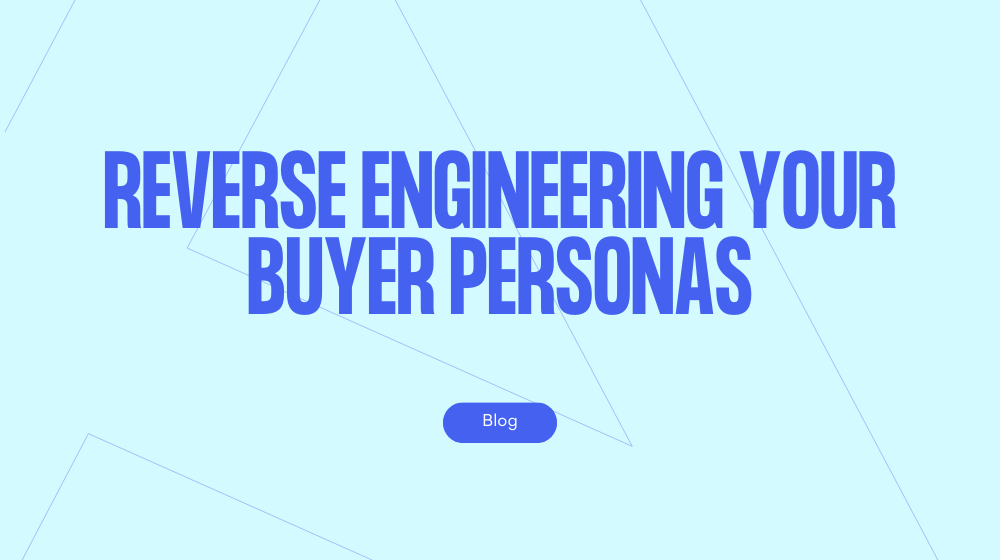Buyer personas are characterisations of the people businesses want to target to buy their products or services. Most businesses – or at least their comms departments – will be familiar with the concept of buyer personas.
If not, then they may have bigger problems than we can deal with in a single blog post.
There’s more than one way to go about creating a buyer persona – there are all sorts of different questions you can ask, for example, and you might want focus on the type of customers you’re already getting or the ones you really want. Indeed, if you search online for how to create buyer personas, you’ll find article after article explaining how to create personas – each suggesting a different approach to the last.
Although any given one of those articles might help you create a valuable and useful buyer persona, many of them feel padded out with suggested questions that aren’t necessarily required. Of course, it could potentially be useful to know what your persona does in their free time or whether they live in the city, the suburbs or the countryside, but this sort of detail can just distract from the main purpose.
For a leaner, more focused approach to creating personas, it’s simply a case of reverse engineering them from the information that is specific to targeting them:
- Who are they?
- What sort of content do they like?
- Where do they get their content?
- When do they get their content?
By thinking about personas in this more focused way, we can identify questions that address only these points and therefore give us just the insights we need to put our messaging in front of the people we want to reach. The question you need answering might still change depending on your company or the personas your creating, but you’re able to trim away questions that aren’t entirely necessary and make a much more streamlined process.
Who
- What is their job title?
- What are their responsibilities?
- Who is involved in the buying process?
What
- How is success measured in their position?
- What do they enjoy the most in their job?
- What frustrates them in their job?
- What are their goals?
- What helps them to achieve their goals?
- What are their challenges?
- What helps them to overcome their challenges?
- What work things do they search for online?
Where
- What publications, blogs and websites do they read?
- What social media websites do they use?
- What groups and networks are they part of?
- What events, conferences and seminars do they attend?
When
- What does a typical workday look like?
- When do they read you publications, blogs and websites?
- When do they use social media?
You can see just by looking at these persona questions that they are much more tightly focused around how to reach the persona. None of this is to say that a more detailed persona with lots of contextualising background information isn’t right for you – that depends from business to business. If you want a more stripped back and targeting-focused persona though, you just need to work backwards like this!




